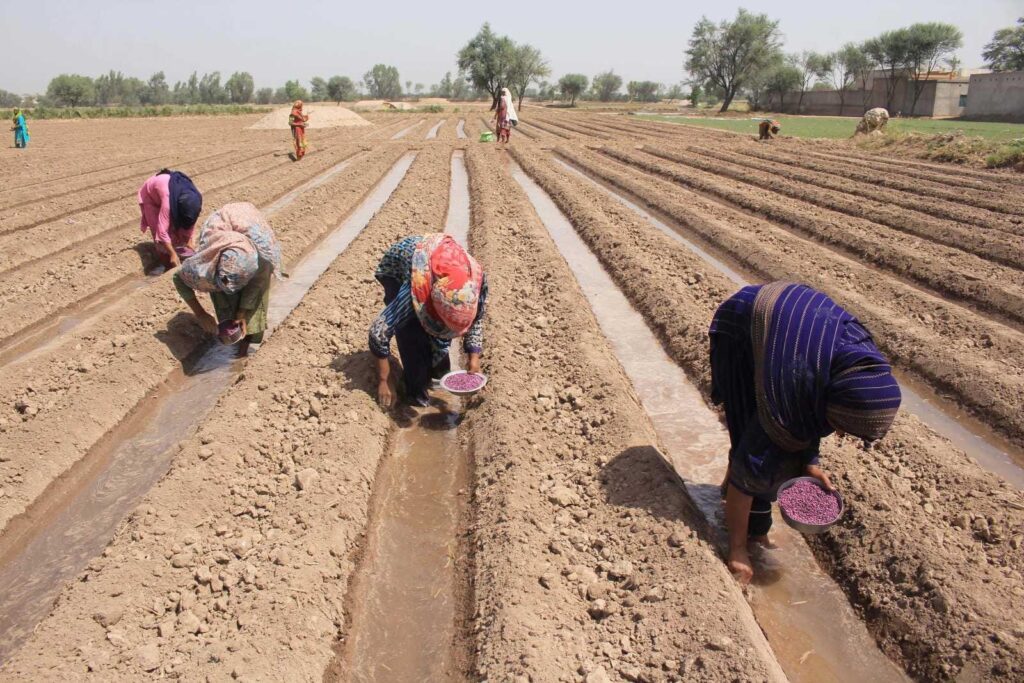By Asad Cheema
ISLAMABAD: A meeting aimed at boosting early cotton production in Pakistan was held at the Cotton Research Station Faisalabad on Monday. The session was chaired by Chief Scientist Agriculture (Research), Dr Sajid ur Rahman, and attended by various stakeholders, including researchers and farmers.
According to Sajid ur Rahman, the key objective of the meeting was to encourage farmers to cultivate early cotton in line with the Agriculture Department’s ambitious target of covering 10 million acres of land. Sajid highlighted that the per-acre yield of cotton has been on a continuous decline in seasonal sowing, stressing the importance of early planting to help reverse this trend.
Sajid urged farmers to begin sowing cotton by February 15, noting that the sowing period from February 15 to March 31 is critical for ensuring the best possible yields. He recommended farmers use approved cotton varieties, such as Rayaal, Cindal, Raya, and Kinnow, to achieve optimal results. The certified seed varieties can produce yields ranging from 60 to 70 Maunds per acre when properly sowed. He also emphasized that proper soil preparation and seed selection are essential for maximizing productivity.
Farmers urged to boost early cotton production for higher yields: Agriculture experts stress timely sowing
Sajid gave an in-depth lecture on low-cost production technologies suited for early cotton cultivation and emphasized the significance of using certified seeds for optimal yield. “To achieve maximum yields of up to 70 Maunds per acre in early sown cotton, it is crucial to use glyphosate-tolerant, three-gene varieties that can yield high results with minimal inputs,” Chief Scientist Agriculture stated during the meeting.
Further addressing the challenges facing cotton cultivation, Dr. Rahman stressed the need for modern crop management techniques to combat climatic challenges and pest infestations. He advised farmers to seek guidance from the Agriculture Department regarding the prevention of whitefly attacks, pink bollworm infestations, and other extreme weather conditions.
Dr Sajid also instructed the researchers at the Cotton Research Station to play a pivotal role in the campaign to revitalize Pakistan’s cotton industry, boosting economic growth and prosperity for the country’s farming communities. Chief Scientist Agriculture also suggested some new experiments to the researchers of the institute regarding early sown cotton so that precise information must be generated which can benefit the farmers to obtain maximum yield.
He also urged researchers to develop Climate-resilient cotton varieties that can thrive in Pakistan’s diverse climate conditions. He also discussed some improved irrigation, fertilization, and pest management. Practices which can benefit the farming community.




